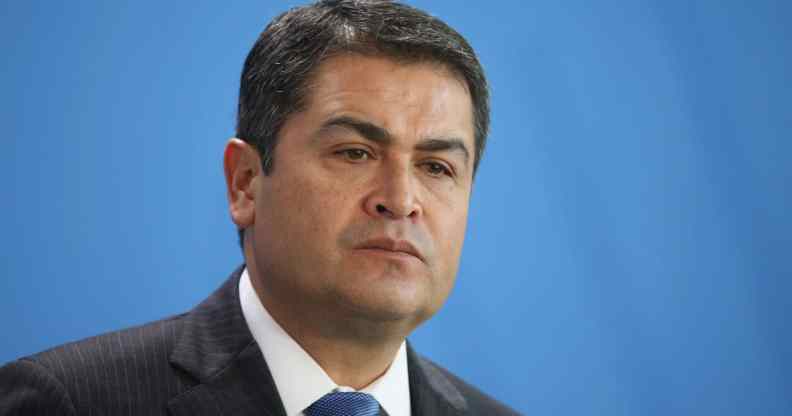Honduras amends constitution to make legalising marriage equality almost impossible

Juan Orlando Hernandez, president of Honduras. (Getty/ Sean Gallup)
The conservative Central American country of Honduras has amended its constitution to make legalising marriage equality and abortion almost impossible.
Although homosexuality was legalised in Honduras in 1899, same-sex marriage has been banned in the country since the constitution was amended to explicitly forbid it in 2005. This amendment also prevented same-sex adoption and the recognition of same-sex unions in other countries.
But on Thursday (28 January), the Honduras legislature voted to change the number of votes need to reform the country’s constitution, making sure that repealing these laws was almost impossible.
Until now, a two-thirds vote was needed to reform the country’s constitution, but now three quarters of legislators must agree.
The change also makes it near impossible to repeal the country’s constitutional ban on abortion, which already gives a foetus the same rights as a human being. Emergency contraception is banned, and women who terminate a pregnancy can spend three to six years in prison.
Mario Perez, who is a member of president Juan Orlando Hernandez’s National Party of Honduras, said the change provided a “constitutional lock” on the anti-LGBT+ and anti-abortion laws.
Cristian González Cabrera, a Human Rights Watch researcher who focuses on Latin America and the Caribbean, told Out: “It is worrying that congress has passed this law, which represents an attempt to block the constitutional advances that we have seen in much of the Latin American region in sexual and reproductive rights and same-sex marriage.
“Honduras’s draconian laws already prohibit abortion and marriage equality so the reform attempts to prohibit future lawmakers from reconsidering the issue.”
Cabrera added: “By seeking to permanently and comprehensively block any possibility of accessing marriage for same-sex couples, the Honduran congress is entrenching state-sponsored homophobia.”
The queer community in Honduras faces high levels of discrimination and violence, and between 2009 and 2017, at least 264 LGBT+ people were known to have been murdered.

